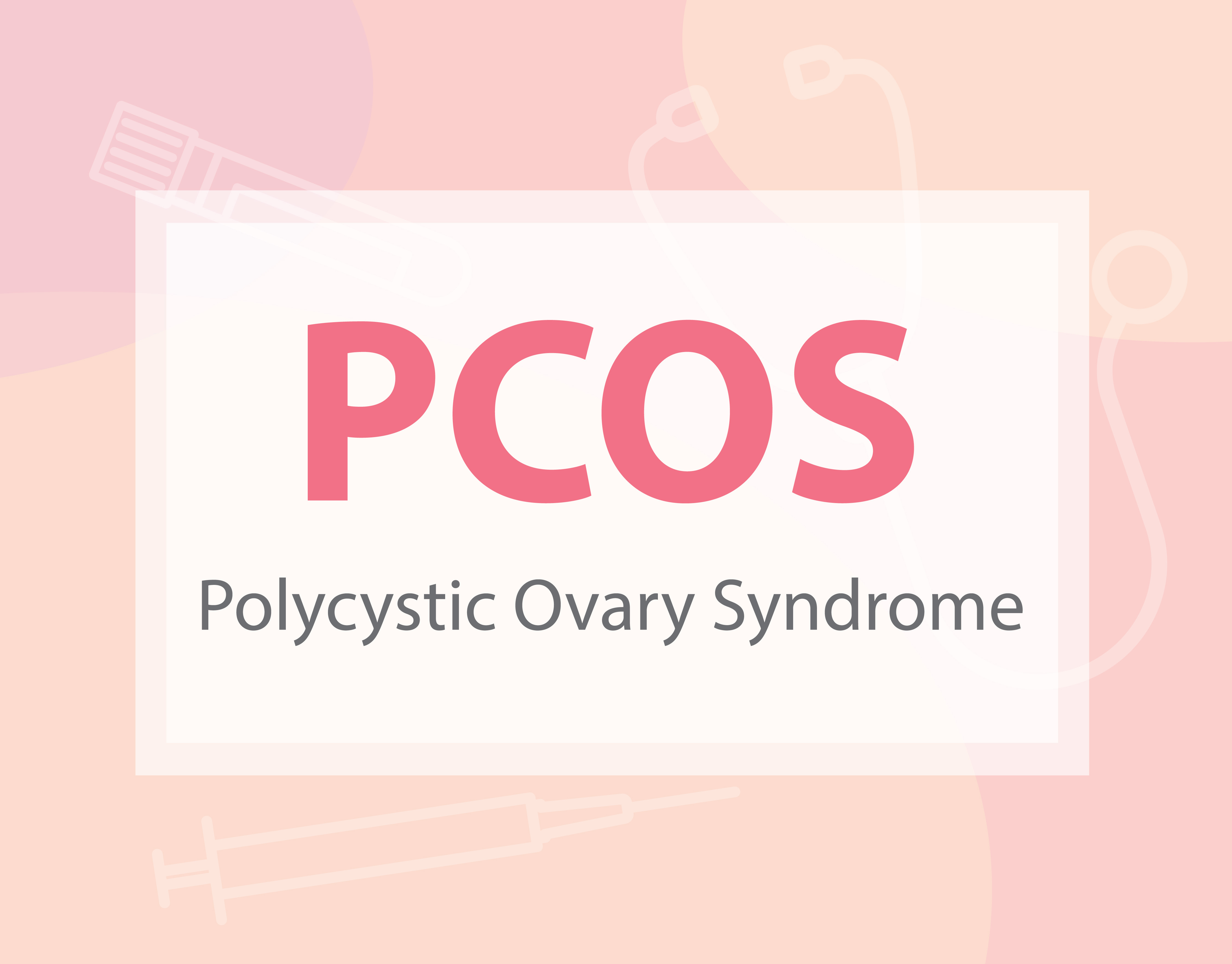Polycystic Ovary Syndrome (PCOS) Blog
Knowledge and News on Women’s Health (KNOWH) blog from FDA Office of Women’s Health
May 15, 2023
National Women’s Health Week (NWHW) is an annual observance that starts each year on Mother’s Day to encourage women and girls to make their health and wellbeing a priority. The FDA Office of Women’s Health (OWH) theme for this year is #KNOWH more About Your Health, Today and Every Day.
This NWHW, we are encouraging women to prioritize their health and bringing attention to health conditions such as Polycystic Ovary Syndrome (PCOS), a condition specific and important to women.
To help women learn more about PCOS, the FDA Office of Women’s Health (OWH) interviewed, Dr. Kathleen Hoeger, Professor of Obstetrics and Gynecology, and Chief of the Division of Reproductive Endocrinology at the University of Rochester Medical Center.
Dr. Hoeger has a research interest in the management of PCOS and established the PCOS Lifestyle Center at the University of Rochester for which she currently serves as Director, focusing on nutrition, lifestyle change and medication in the management of PCOS.
The views expressed are those of Dr. Kathleen Hoeger and do not necessarily reflect opinions, views, or official policy of the U.S. Food and Drug Administration’s Office of Women’s Health.
What is Polycystic Ovary Syndrome (PCOS)?
PCOS is a common hormonal condition affecting more than 10% of women who may have symptoms of high male hormone levels and irregular cycles.
The three clinical criteria of PCOS are:
- Evidence of excess male type hormones, noted either by having elevated blood hormones levels of androgens or excess growth of facial or body hair in areas where men usually have hair
- Irregular periods with menstrual cycles more than 35 days apart or eight or fewer menstrual cycles per year not due to hormonal birth control
- The presence of a high number of eggs on an ovarian ultrasound
A woman with two of the three above criteria may be diagnosed with PCOS.
What causes PCOS?
What causes PCOS is not entirely known. It is a complex condition with likely both a genetic and environmental origin. The impact of these genetic and environmental factors is that normal ovulation is disrupted, resulting in abnormal periods and an increased risk of metabolic problems such as increased insulin resistance and elevated lipids (high cholesterol). These metabolic problems may also be seen in family members. In fact, we know that 50% of daughters and female siblings will also have PCOS so the genetic contribution is significant.
What are the symptoms of PCOS? How do you know if you have PCOS?
The two main symptoms of PCOS are irregular menstrual cycles and signs of too much androgen production. Excess androgen can cause unwanted facial and body hair. Many women may notice these symptoms on their own, but a medical exam is still needed to confirm if someone has PCOS and to check for other related metabolic abnormalities, like diabetes.
How is PCOS treated?
There is no single treatment that works for all women with PCOS. Typically, treatment is used to relieve specific PCOS symptoms. For example, oral contraceptives (OCs) can be used to manage menstrual cycles. Certain medications may also help control unwanted hair growth. Laser hair removal or electrolysis is also helpful in some cases. Metabolic abnormalities, such as insulin resistance, are linked to an increased risk of diabetes and treatment with medicine like metformin may be helpful.
Lifestyle modification - which includes dietary changes and physical activity, may improve certain aspects of PCOS and is still considered a primary treatment. Fertility concerns are usually best treated with medicines that promote ovulation.
Is it possible to reduce the risk of developing PCOS?
Right now, we don’t have proof that any certain treatment can stop the development of PCOS since the risk of developing PCOS is likely predetermined by genetics. Avoiding weight gain, particularly in adolescence and early adulthood, may help reduce the risk of developing PCOS symptoms.
Can you have a healthy pregnancy with PCOS?
Absolutely! While there is an increased risk of gestational diabetes, high blood pressure, and possible preterm delivery described with PCOS pregnancies, most pregnancies occur without complications. Again, pre-pregnancy planning is important.
Living a healthy lifestyle that includes exercise, healthy eating, and getting enough sleep before getting pregnant will likely be beneficial in the early stages of pregnancy. Interestingly, losing weight prior to pregnancy for those who are of higher weight has not been associated with improved pregnancy rates. Overall, living a healthy lifestyle is associated with lower pregnancy risks.
What other health problems can occur with PCOS?
Diabetes, high cholesterol, and high blood pressure are all more common in women with PCOS. Whether having PCOS leads to increased cardiovascular disease is not clear, but several studies suggest an increased lifelong cardiovascular risk. Obstructive sleep apnea is also more common in women with PCOS. Additionally, there is a psychological impact. Increased risks of depression and anxiety are well documented in women with PCOS, and this is important to discuss with your health care provider.
What are some misconceptions about PCOS?
The most common misconception is that PCOS is caused by, or associated with, ovarian cysts. Even though “cystic” is in the name, cysts are not the cause or a symptom of PCOS. Another misconception is that patients with PCOS will never conceive. This is not true. Many women with PCOS can become pregnant on their own, without intervention. Those with fertility concerns often conceive successfully with treatment.
Learn more about PCOS and treatment with these resources:
- Polycystic Ovary Syndrome (PCOS) | OASH Office on Women's Health
- Polycystic Ovary Syndrome (PCOS) | CDC
- Polycystic Ovary Syndrome (PCOS) | NICHD
For resources and materials on other women's health topics, visit www.fda.gov/womens.




